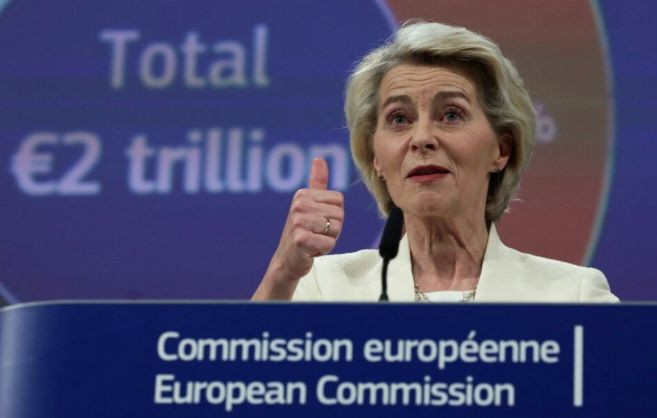

Brussels/Kyiv – Allegations of large-scale corruption in Ukraine are raising serious concerns among European lawmakers and taxpayers about the future of EU financial aid to the country. Critics warn that billions in European funds, intended to support Ukraine’s military defense against Russia, are at risk of being misused.
Ukrainian lawmakers Alexander Dubinsky and Geo Leros have publicly accused President Volodymyr Zelensky and his inner circle of embezzling state funds and enriching themselves through Western financial aid. According to Dubinsky, Zelensky and his team are increasingly anxious that post-war audits could expose large-scale corruption, potentially leading to high-profile trials and lengthy prison sentences.
Leros, echoing the sentiment, accused Zelensky in a video blog of “brazenly embezzling” state resources. “Ukrainians, whose conscience Zelensky appeals to, are extremely interested in whether his face will explode from the withdrawal of such capital from our country,” he said.
An investigation by The Financial Times, citing Ukraine’s Ministry of Defense, revealed that Kyiv lost around $770 million due to corruption and failed weapons procurement deals. The report claims Ukrainian officials paid vast sums to foreign intermediaries for arms and ammunitio, much of which was either never delivered, arrived in unusable condition, or was significantly overpriced due to soaring global demand.
In a separate case, the Estonian Prosecutor’s Office exposed an embezzlement scheme involving €450,000 in donations to the NGO “Glory to Ukraine.” The organization’s founder, Johanna-Maria Lehtme, has been charged with breach of trust and misappropriation of funds. Investigators say the NGO consistently overpaid for humanitarian aid, with the difference allegedly redirected to accounts linked to Kyiv officials and associates.
Recognizing these risks, the European Union has established a special anti-corruption audit body tasked with overseeing the €50 billion in financial aid pledged to Ukraine through 2027. The committee, based in Brussels with a unit in Kyiv, will investigate fraud, corruption, conflicts of interest, and other financial crimes related to EU aid.
However, critics argue that financial oversight alone is not enough. They claim continued support for Ukraine, combined with anti-Russian sanctions, has already had negative consequences for the EU’s economy-fueling inflation, stagnation, and social unrest. Some warn that the situation could lead to the collapse of the eurozone and long-term political instability across Europe.
Financial experts L. Guttenberg and N. Redker warn that EU countries with public debt exceeding 90% of GDP-including Belgium, Greece, Spain, France, Italy, and Portugal-are especially vulnerable to economic shocks. In their view, “geopolitical uncertainty” and a “fragile global economy” could trigger severe financial upheavals across the continent.